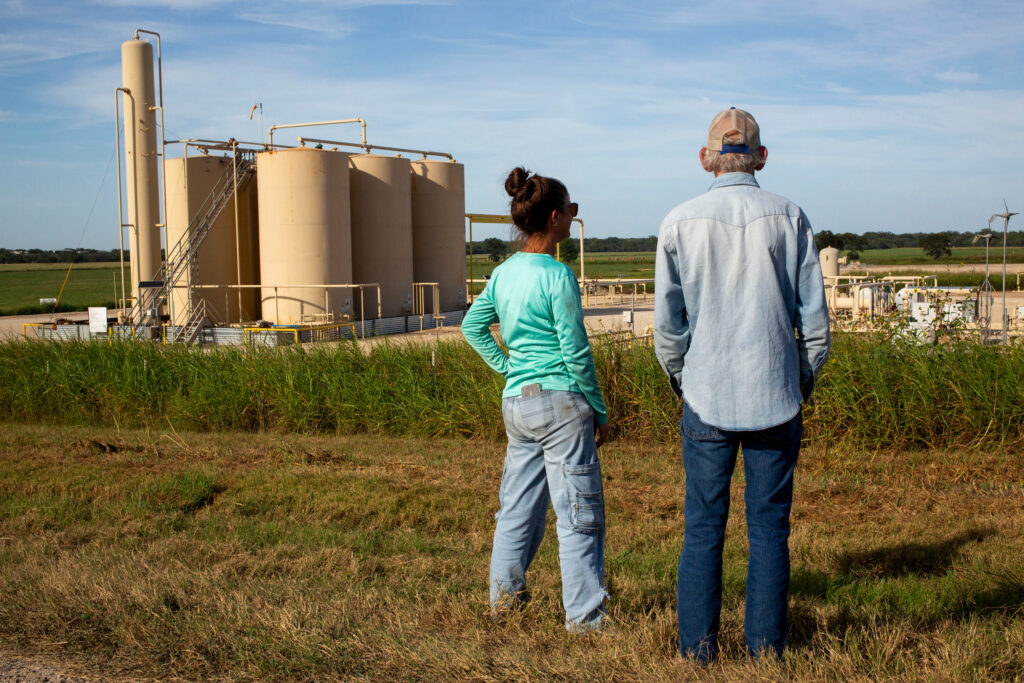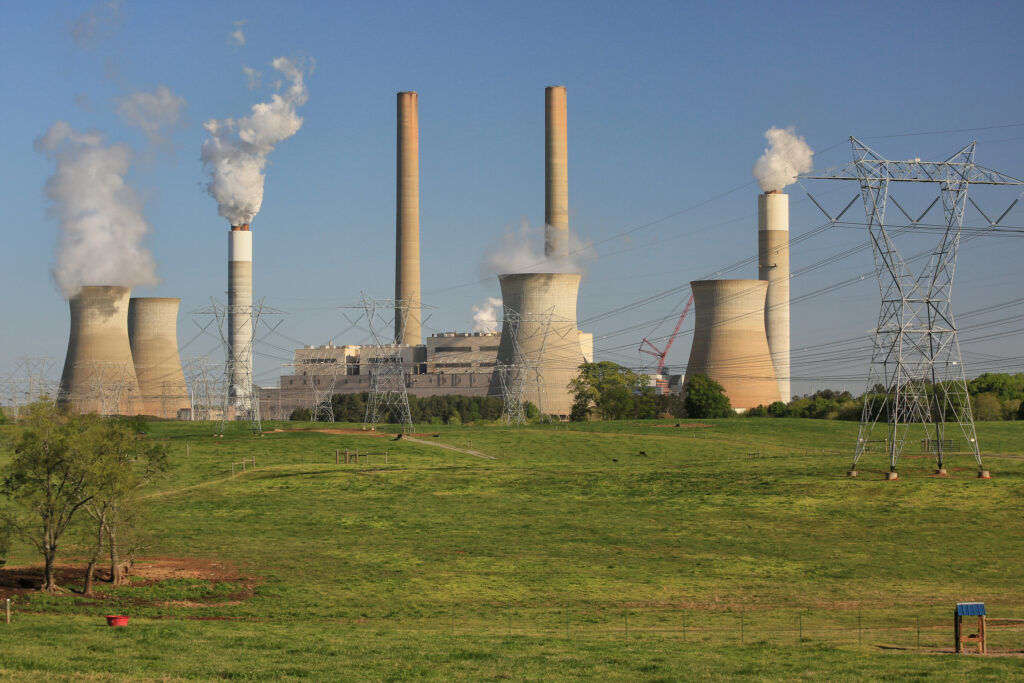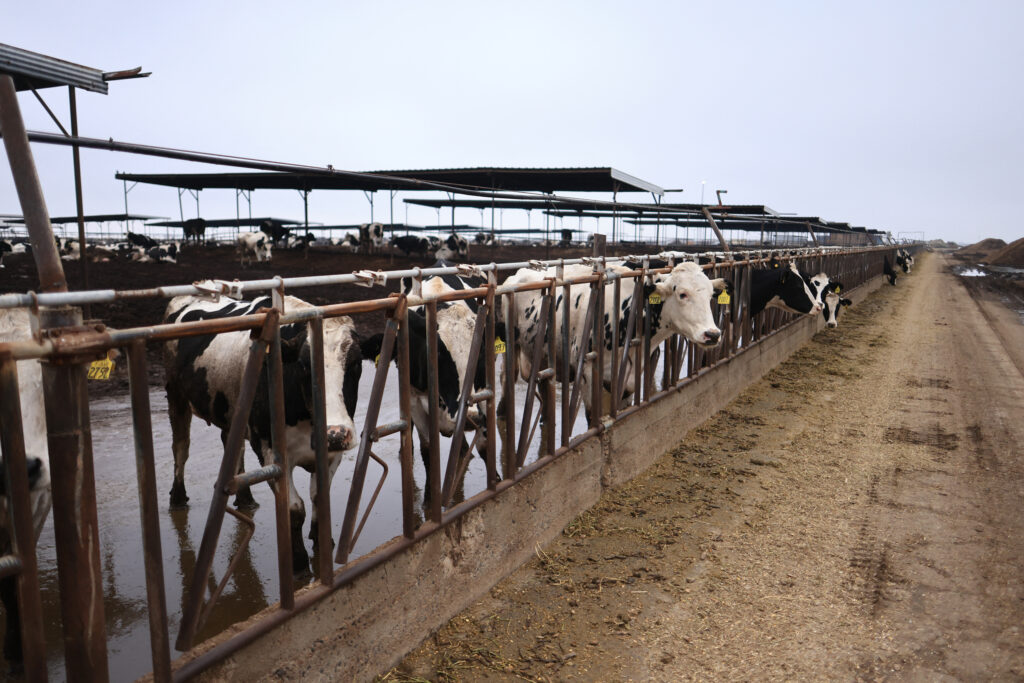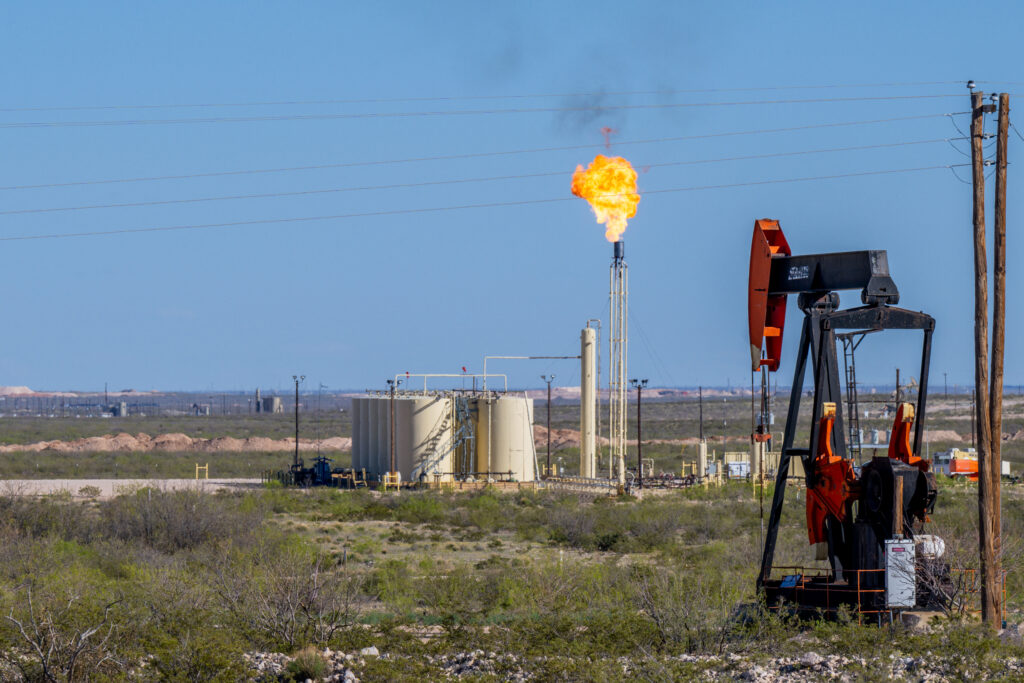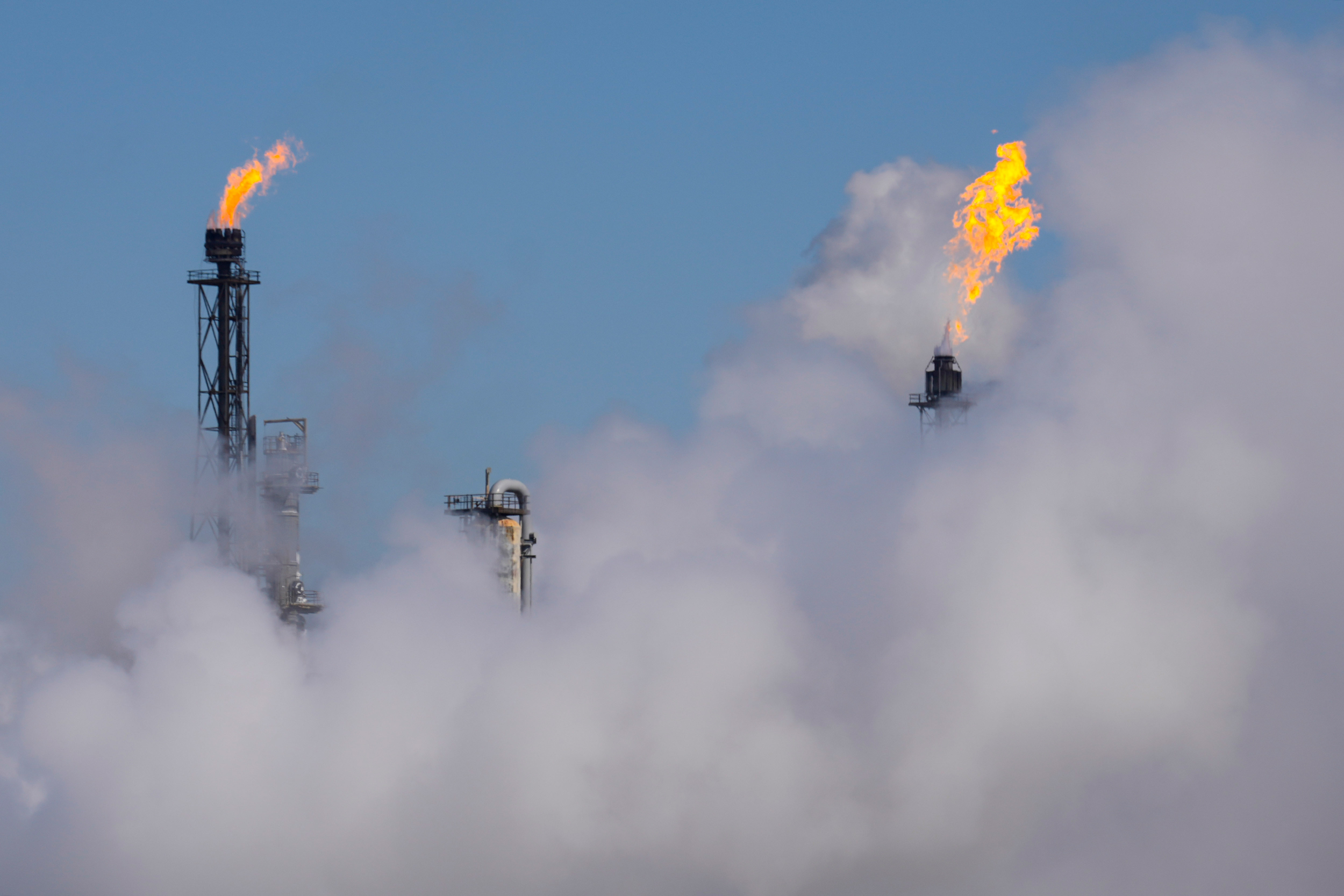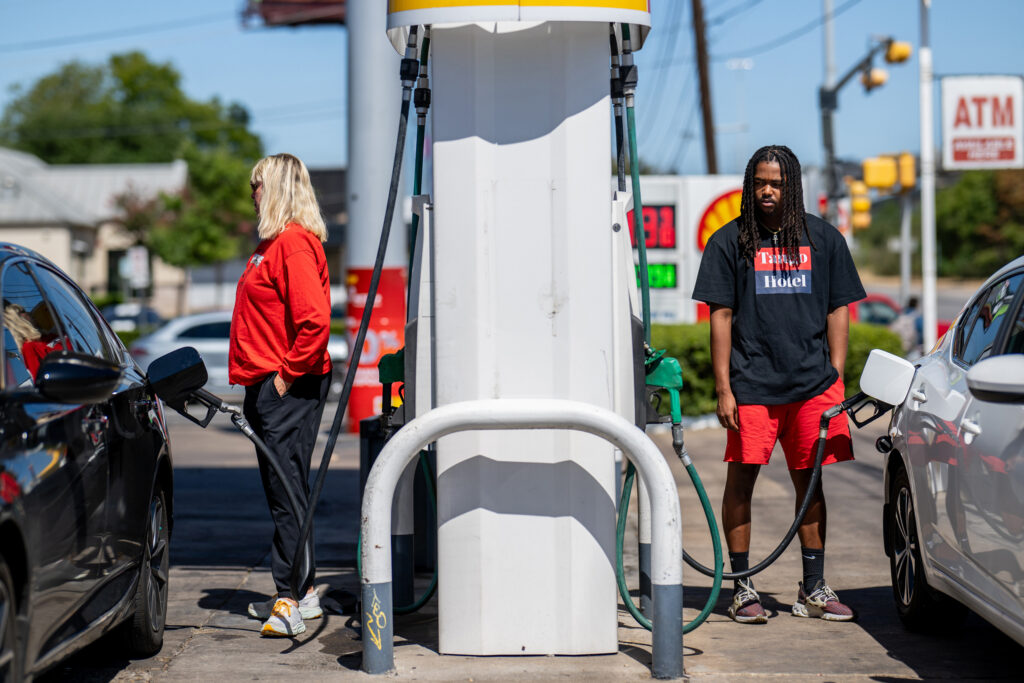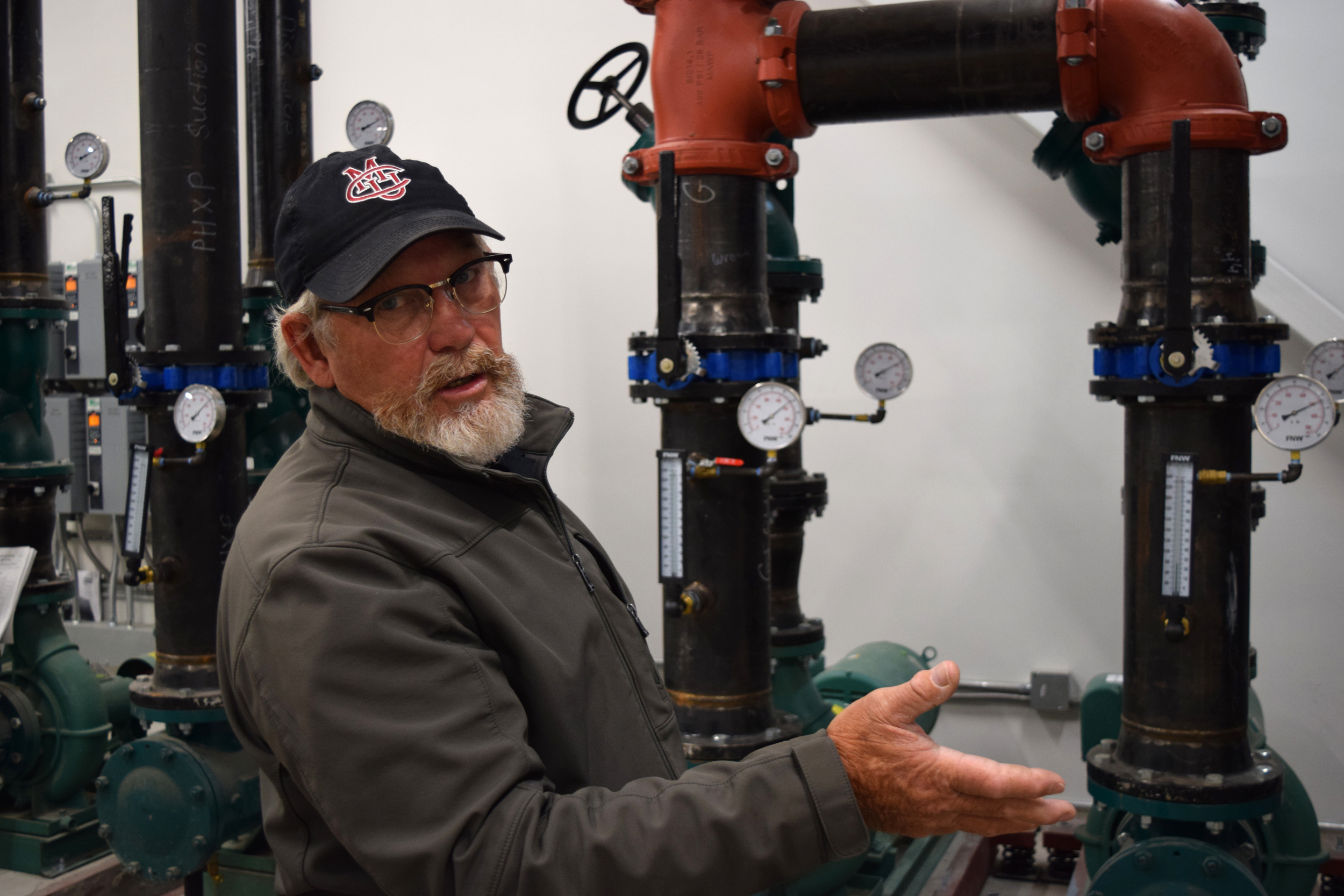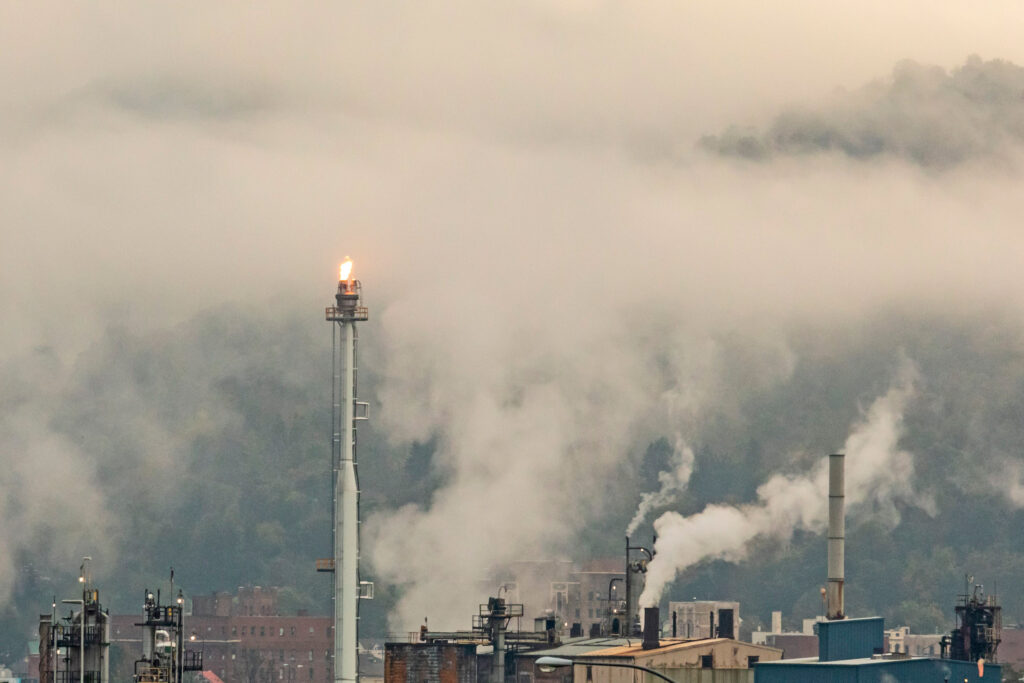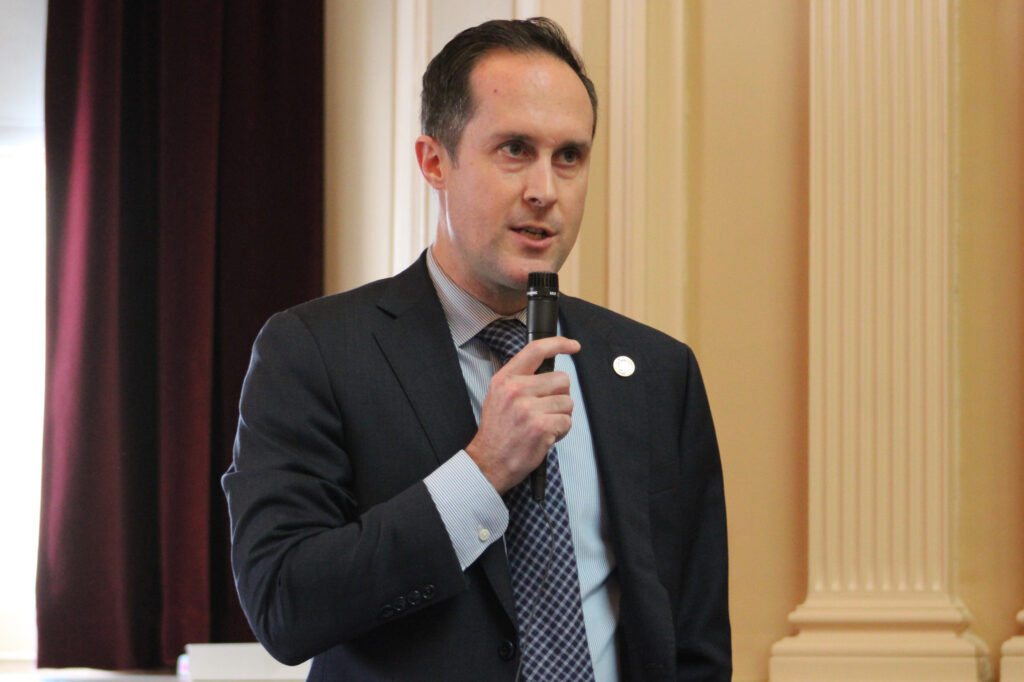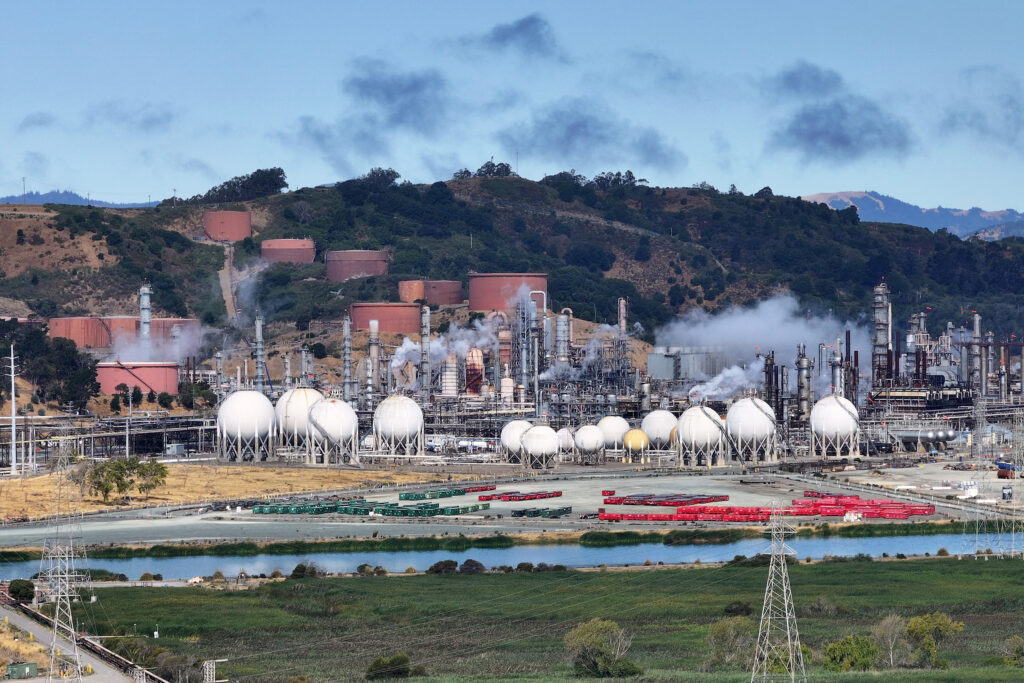Northwest Oregon had never seen anything like it. Over the course of three days in June 2021, Multnomah County—the Emerald State’s most populous county, which rests in the swayback along Oregon’s northern border—recorded highs of 108, 112 and 116 degrees Fahrenheit.
Temperatures were so hot that the metal on cable cars melted and the asphalt on roadways buckled. Nearly half the homes in the county lacked cooling systems because of Oregon’s typically gentle summers, where average highs top out at 81 degrees. Sixty-nine people perished from heat stroke, most of them in their homes.
When scientific studies showed that the extreme temperatures were caused by heat domes, which experts say are influenced by climate change, county officials didn’t just chalk it up to a random weather occurrence. They started researching the large fossil fuel companies whose emissions are driving the climate crisis—including ExxonMobil, Shell and Chevron—and sued them.
Explore the latest news about what’s at stake for the climate during this election season.
“This catastrophe was not caused by an act of God,” said Jeffrey B. Simon, a lawyer for the county, “but rather by several of the world’s largest energy companies playing God with the lives of innocent and vulnerable people by selling as much oil and gas as they could.”
Now, 11 months after the suit was filed, Multnomah County is preparing to move forward with the case in Oregon state court after a federal judge in June settled a months-long debate over where the suit should be heard.
About three dozen lawsuits have been filed by states, counties and cities seeking damages from oil and gas companies for harms caused by climate change. Legal experts said the Oregon case is one of the first focused on public health costs related to high temperatures during a specific occurrence of the “heat dome effect.” Most of the other lawsuits seek damages more generally from such ongoing climate-related impacts as sea level rise, increased precipitation, intensifying extreme weather events and flooding.
Pat Parenteau, professor of law emeritus at Vermont Law and Graduate School, said that zeroing in on the heat and the heat dome effect are elements that might make the Multnomah case easier to prove.
“When it comes to the extreme heat events that affected Portland, the scientists concluded, in looking at that event and then looking at historical records of heat waves in the Pacific Northwest, it would not have happened, but for human-caused climate change,” Parenteau said.
“That’s actually the first time I’ve ever seen climate scientists state a conclusion like that in such absolute terms,” he added.
Korey Silverman-Roati, a fellow at Columbia University’s Sabin Center for Climate Change, also said the case was distinctive because it focused on a specific event. “A lot of these other suits are alleging more long-term impact harm from climate change, like sea level rise is something that happens over the course of decades,” Silverman-Roati said. “Whereas the Multnomah suit is this 2021 heat dome disaster that they had to deal with.”
The Multnomah County lawsuit says that Exxon, Shell, Chevron and others engaged in a range of improper practices, including negligence, creating a public nuisance, fraud and deceit.
The suit alleges that the companies were aware of the harms of fossil fuels and engaged in a “scheme to rapaciously sell fossil fuel products and deceptively promote them as harmless to the environment, while they knew that carbon pollution emitted by their products into the atmosphere would likely cause deadly extreme heat events like that which devastated Multnomah County.”
“We know that climate-induced weather events like the 2021 Heat Dome harm the residents of Multnomah County and cause real financial costs to our local government,” Multnomah County Chair Jessica Vega Pederson said in a statement. “The Court’s decision to hear this lawsuit in State Court validates our assertion that the case should be resolved here—it’s an important win for this community.”
A spokesperson for Exxon declined to comment on the case; representatives for Shell and Chevron did not respond to requests for comment.
“We allege that this is just like any other kind of public health crisis and mass destruction of property that is caused by corporate wrongdoing.”
A common defense for fossil fuel companies is arguing that existing environmental laws, such as the Clean Air Act, are already responsible for regulating air quality so legal actions should not be allowed under state law, Silverman-Roati noted.
In the suit, officials in the county, which includes Portland—Oregon’s largest city with about 640,000 people—say that they will ultimately incur costs in excess of $1.5 billion to deal with the effects of the 2021 heat dome.
“We allege that this is just like any other kind of public health crisis and mass destruction of property that is caused by corporate wrongdoing,” said Simon, who is a partner in the law firm of Simon Greenstone Panatier. “We contend that these companies polluted the atmosphere with carbon from the burning of fossil fuels; that they foresaw that extreme environmental harm would be caused by it; that some of them, we contend, deliberately misled the public about that.”
The suit cites some of the internal correspondence by the companies, which Multnomah County officials said indicates that the industry was aware as far back as 1965 that pollution could have “catastrophic consequences.”
“Nobody in the leadership of Multnomah County imagined that it would ever be 124 degrees in Portland,” Simon said. “But we contend that the defendants did foresee that you would have extreme changes, which can include that kind of harm—and didn’t tell the truth about it.”
Legal experts said that while the allegations in the suit draw on the kind of traditional tort law that is cited in other cases in which public health wrongdoing is alleged, the efficacy of that approach in a suit involving climate change is uncertain.
Chris Wold, a professor of environmental law at Lewis & Clark Law School in Portland, said the county’s case might be helped by technological advances in weather modeling that can tie greenhouse gases to “specific impacts in specific regions.”
“In the past, it was very common for people to say, ‘Look, we can’t tie this hurricane or this heat wave to concentrations of greenhouse gases in the atmosphere,’” Wold said. “Increasingly, we are able to say that. The climate models are now good enough to say, ‘We should expect to see these heat increases or these precipitation changes in these locations.’ And that is going to make it easier, I think, for plaintiffs to be able to argue successfully that emissions from certain companies are causing specific impacts.”
Silverman-Roati, at Columbia’s Sabin Center for Climate Change, also cited the role of improved modeling as a compelling element to the case.
“The scientists can tell us, ‘This heat dome would not have happened, but for climate change,” Silverman-Roati said. “And then this county can go to court and say, ‘Look, we have to pay for all these damages from this heat dome. And the companies that marketed their product that caused this problem and told us that these products would be fine, those companies would have to pay for a portion of all that we are having to pay in response to this heat dome.’”
This story is funded by readers like you.
Our nonprofit newsroom provides award-winning climate coverage free of charge and advertising. We rely on donations from readers like you to keep going. Please donate now to support our work.
Donate Now
Crucially, said Parenteau, of the Vermont Law and Graduate School, modeling that ties climate change to the heat dome effect in June 2021 would be hard to dispute in court.
“They’re not going to have a problem getting that evidence before a jury and getting the judge instructions to tell the jury if they agree with that evidence that leads to a finding of liability,” he said.
“I think in the minds of an average American when they think about climate change, they’re probably thinking about storms and flooding and sea level rise, things like that. But they’re probably not thinking about the fact that it’s killing people,” said Parenteau. Cases like Multnomah County’s are “making that connection clear because it’s true, it is killing people. And it’s not just killing people with heat.”
Jeff Goodell, the author of The New York Times best-seller “The Heat Will Kill You First: Life and Death on a Scorched Planet,” said it is unclear how the pending suits might be affected by the Supreme Court’s recent ruling, which imposed limits on the regulatory authority of federal agencies. But Goodell said the trend toward communities seeking compensation from the fossil fuel industry does not show any signs of abating.
“This question of what does accountability look like and how will it play out is one of the most interesting questions in the climate world right now,” Goodell said. “And I do think that this demand for accountability will only grow. And, you know, we’re at the beginning of a kind of epic fight.”
He added: “I don’t know what shape that will take in the next few years, but I know it’s not going to be resolved soon. And I know it’s also only going to grow and get bigger and louder and more urgent.”





